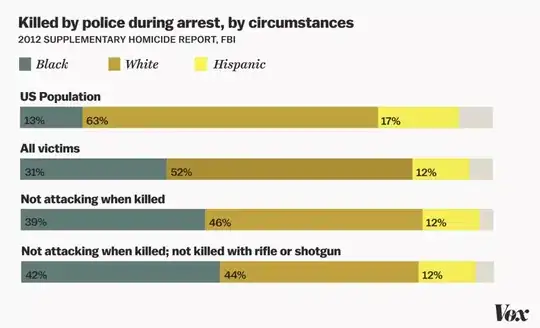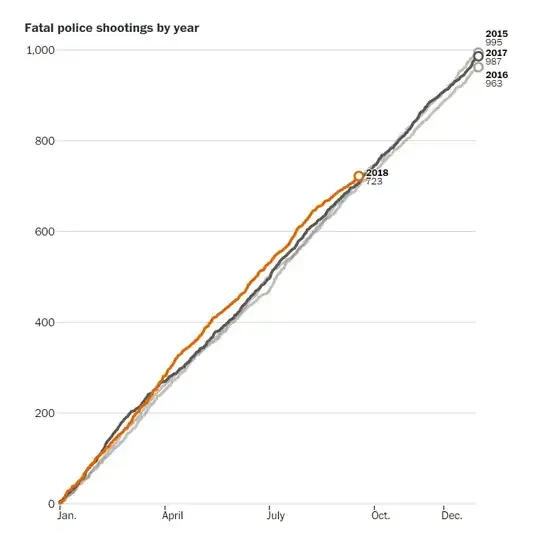I was watching a video by conservative political commentator Ben Shapiro. He talks about Nike's ad featuring Colin Kaepernick. There is a claim he makes that black people are not being disproportionately shot by police.
The question is "Are you believing the right things?" Colin Kaepernick is not. He hasn't provided a shred of data to support his assertions that black people in the United States are being disproportionately shot by police, because in fact they are not.
Link to quote in video
This is the claim I would like to know is true or not, even though Shapiro further says that cops aren't "out there" shooting Black people but largely protecting Black people "that's why they're policing the inner city" and earlier he says that the disproportionality is a [thus] a "statistical anomaly".

